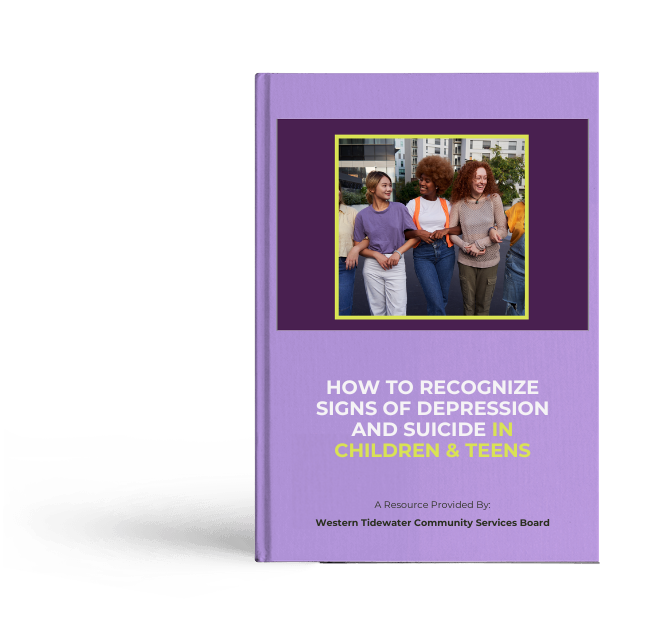From financial stress to climate concerns to daily life pressures, more and more Americans are experiencing mental health challenges.
But accessing timely support can be difficult. In moments of distress, many people turn to the nearest urgent care clinic, hoping to find help for anxiety, depression, or emotional overwhelm.
That raises an important question: Can you go to urgent care for mental health concerns?
Traditionally, urgent care has focused on physical ailments, things like flu symptoms, minor injuries, or infections. But in some cities, that’s beginning to change.
In this blog, we’ll break down what mental health care options are available at urgent care centers, what their limitations may be, and why you might want to consider a clinic specifically designed for mental health needs.
Urgent Care and Mental Health
The connection between mental and physical health is undeniable. Anxiety can cause rapid heart rate. Depression can leave you exhausted and unable to function. As awareness of these mind-body connections grows, some urgent care clinics are expanding to include limited mental health services.
You might be able to get support for:
- Anxiety or panic attacks
- Depression or emotional overwhelm
- Medication refills or adjustments
- Referrals for therapy or follow-up care
If you walk into a traditional urgent care facility experiencing mental health symptoms, they will likely perform an evaluation and determine whether you’re stable or need more intensive care. In many cases, they can offer short-term relief, but there are important limits to what they can provide.
Limitations of General Urgent Care for Mental Health
While some general urgent care clinics are doing their best to meet rising mental health needs, they are often not equipped for mental health crises. Here’s why:
- Lack of Mental Health Specialists: Most traditional urgent care centers are staffed by physicians or nurse practitioners, not therapists or psychiatrists. They may not have the training to properly assess or treat mental health conditions.
- Overstimulating Environment: Bright lights, crowded waiting rooms, and fast-paced medical care can increase distress for someone in emotional crisis.
- Medication Constraints: Many urgent cares cannot prescribe psychiatric medications like mood stabilizers or antipsychotics, especially for first-time users.
- Short-Term Focus: These clinics are built for rapid treatment and discharge, not long-term emotional support or care planning.
In short, while general urgent care may offer temporary relief or help you access referrals, it’s not designed to be a true mental health support system.
Why Choose a Mental Health–Specific Urgent Care
For individuals in crisis, a Crisis Receiving Center (CRC), like the one offered by Western Tidewater Community Services Board, can make all the difference. A CRC functions much like an urgent care clinic, but is focused entirely on mental health and substance use needs.
At a CRC, you’ll find:
- A calm, supportive setting tailored to emotional healing
- 24/7 walk-in access, no appointment required
- Immediate mental health assessments and stabilization
- Peer support from people with lived experience
- Short-term stays (up to 23 hours) in a safe environment
- Direct connections to follow-up care like therapy or medication management
- Support for co-occurring substance use concerns
Unlike a hospital ER, which can be overwhelming, or a general urgent care, which may not have the tools to help, a CRC is built specifically to help people experiencing emotional and behavioral crises.
What to Expect When You Seek Help
Whether you visit a traditional urgent care or a CRC, here’s what you might experience:
- A medical or mental health professional will ask questions about your symptoms, history, and any risks of harm to yourself or others.
- They may suggest medication, therapy referrals, or hospitalization if needed.
- If you’re in the right setting, like a CRC, they can help you calm down, stabilize, and begin a path toward longer-term healing.
Honesty is crucial during these conversations. The more open you are, the more effectively the team can support you.
How to Help Yourself in the Moment
If you’re in emotional distress but not ready to seek in-person help, try one of these grounding strategies:
- Breathing exercises to calm the nervous system
- 5-4-3-2-1 method to reconnect with the present moment
- Journaling to sort through difficult emotions
- Talking with a trusted friend or family member
- Online support groups where you can share experiences anonymously
These tools can be helpful, but they’re not a substitute for professional help when you’re overwhelmed, struggling with suicidal thoughts, or dealing with worsening symptoms.
When to Seek Immediate Support
If you are:
- Thinking about suicide or self-harm
- Experiencing severe panic or depressive episodes
- Using substances to cope and can’t stop
- Feeling unable to function or keep yourself safe
Don’t wait. Seek help immediately.
You deserve more than just temporary relief, you deserve real healing.
How Western Tidewater Community Services Board Can Help
If you’re in crisis or need mental health support right away, Western Tidewater’s 24/7 Crisis Receiving Center is here for you. Our team provides compassionate, judgment-free care in a setting built for healing, not just stabilizing.
No appointment is needed. Just walk in. Help is here when you need it.
You’re not alone, and you don’t have to face this alone.
Visit our 24/7 Mental Health Urgent Care Clinic today and take the first step toward feeling like yourself again.








